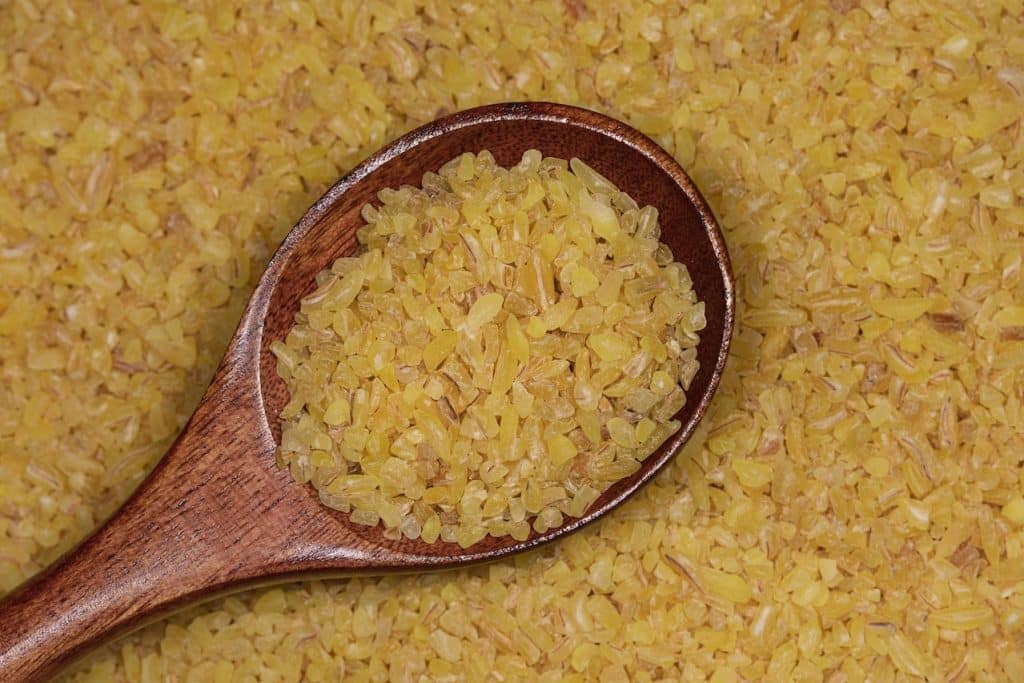Bulgur is a popular grain that is commonly used in Middle Eastern and Mediterranean cuisines. It is a versatile ingredient that can be used in a variety of dishes, including salads, soups, and stews. However, if you’re following a keto diet, you may be wondering if bulgur is keto-friendly. In this article, we’ll examine the nutritional profile of bulgur and discuss whether it can be incorporated into a keto diet.
Before we delve into the question of whether bulgur is keto-friendly, let’s first define what bulgur is and what the keto diet entails. Bulgur is a whole grain that is made by cracking and partially cooking wheat kernels. It is a good source of fiber, protein, and various vitamins and minerals. The keto diet, on the other hand, is a high-fat, low-carb diet that aims to put the body into a state of ketosis, where it burns fat for fuel instead of glucose.
Nutritional Profile of Bulgur

Bulgur is a nutrient-dense grain that provides a range of essential vitamins and minerals. It is also a good source of fiber and protein. According to the United States Department of Agriculture (USDA), one cup (182g) of cooked bulgur contains:
- Calories: 151
- Fat: 0.7g
- Carbohydrates: 33.8g
- Fiber: 8.2g
- Protein: 5.6g
- Vitamin B6: 0.2mg
- Iron: 1.5mg
- Magnesium: 76mg
- Phosphorus: 179mg
- Potassium: 148mg
As you can see, bulgur is relatively low in fat and high in carbohydrates. This raises the question of whether it is compatible with the macronutrient requirements of the keto diet.

⚡️The Ultimate Keto Meal Plan⚡️
Unlock the secret to effortless weight loss and boundless energy. 🥗
Grab Yours Now!Keto Diet Requirements
The keto diet requires followers to consume a high percentage of calories from fat, a moderate amount of protein, and very few carbohydrates. Specifically, the macronutrient breakdown is typically as follows:
- 70-75% of calories from fat
- 20-25% of calories from protein
- 5-10% of calories from carbohydrates
The purpose of this macronutrient ratio is to force the body into a state of ketosis, where it switches from burning glucose for energy to burning fat instead.
Is Bulgur Keto-Friendly?
Given that bulgur is relatively high in carbohydrates and low in fat, it is not considered a keto-friendly food. In fact, one cup of cooked bulgur contains 33.8g of carbohydrates, which is more than the daily allotment for most people on a keto diet.
Additionally, bulgur has a relatively high glycemic index, which means that it can cause a rapid increase in blood sugar levels. This is not desirable for those on a keto diet, as it can disrupt the state of ketosis.
That being said, if you’re following a less restrictive version of the keto diet or are incorporating some carbs into your diet, you may be able to enjoy bulgur in moderation. One serving (1/4 to 1/2 cup) of bulgur contains around 8 to 16 grams of net carbs, which may fit into your daily carb limit, depending on your individual needs and goals.
Alternatives to Bulgur on the Keto Diet
If you’re following a strict keto diet and looking for alternatives to bulgur, there are a variety of keto-friendly grains that you can use instead. Some examples include:
- Cauliflower rice
- Zucchini noodles
- Shirataki noodles
- Konjac noodles
- Almond flour
- Coconut flour
- Flaxseed meal
These options are low in carbohydrates and high in healthy fats, making them suitable for the keto diet. However, it’s important to note that they may not have the same taste or texture as bulgur, so you may need to experiment with different recipes and cooking methods to find what works best for you.
Net Carb Calculator for Bulgur
Sure, here’s a net carb calculator for bulgur:
To use this calculator, simply input the amount of bulgur you plan to consume, in grams. The calculator will then automatically calculate the net carbs, based on the total carbohydrates and fiber content of bulgur.
Net Carb Calculator for Bulgur:
Input the amount of bulgur you plan to consume (in grams):
Net carb calculation:
Total Carbohydrates in bulgur: _ grams Fiber in bulgur: grams
Net carbs in bulgur: __ grams
To calculate the net carbs in bulgur, simply subtract the fiber content from the total carbohydrates. For example, if one serving of bulgur contains 20 grams of carbohydrates and 5 grams of fiber, the net carb calculation would be:
- Net carb calculation:
- Total Carbohydrates in bulgur: 20 grams
- The fiber in bulgur: 5 grams
- Net carbs in bulgur: 15 grams
Keep in mind that the net carb content of bulgur can vary depending on the serving size and cooking method, so it’s always a good idea to check the nutritional information for the specific type of bulgur you plan to consume.
Conclusion
In conclusion, bulgur is not considered keto-friendly due to its relatively high carbohydrate content and glycemic index. However, if you’re following a less restrictive version of the keto diet or are incorporating some carbs into your diet, you may be able to enjoy bulgur in moderation. If you’re looking for keto-friendly alternatives to bulgur, there are a variety of low-carb grains and flours that you can use instead. Ultimately, the key to a successful keto diet is finding the foods that work best for you and your individual needs and goals.
Frequently Asked Questions
Q: What is bulgur?
A: Bulgur is a type of whole wheat grain that has been partially cooked, dried, and then cracked into smaller pieces. It is commonly used in Middle Eastern and Mediterranean cuisine and is often used in salads, stews, and pilafs.
Q: Why isn’t bulgur considered keto-friendly?
A: Bulgur is not considered keto-friendly because it is relatively high in carbohydrates, with a glycemic index of 46-48. One cup of cooked bulgur contains approximately 33 grams of carbohydrates and 8 grams of fiber, resulting in a net carb count of 25 grams per serving. This can make it difficult to fit into a standard ketogenic diet, which typically requires limiting daily carb intake to 20-50 grams.
Q: Can I have bulgur on a modified or less restrictive version of the keto diet?
A: Yes, if you’re following a less restrictive version of the keto diet or are incorporating some carbs into your diet, you may be able to enjoy bulgur in moderation. However, it’s important to be mindful of portion sizes and track your overall carb intake to ensure you stay within your daily limit.
Q: Are there any keto-friendly alternatives to bulgur?
A: Yes, there are a variety of keto-friendly alternatives to bulgur, including cauliflower rice, shirataki noodles, and low-carb flour such as almond flour and coconut flour. These options are lower in carbohydrates and higher in healthy fats, making them more suitable for the keto diet.
Q: Can I still enjoy bulgur occasionally if I’m following a keto diet?
A: Yes, you can still enjoy bulgur occasionally if you’re following a keto diet. However, it’s important to be mindful of portion sizes and factor the net carb count of bulgur into your daily carb allowance. If you’re unsure how much bulgur you can have while still staying within your carb limit, it’s a good idea to consult with a registered dietitian or healthcare professional for personalized guidance.








